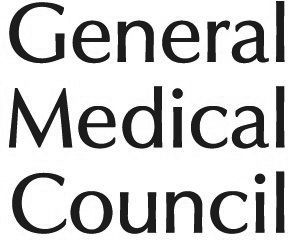Dr Emma Woodward, Consultant Clinical Geneticist
Dr Emma Woodward
Consultant Clinical Geneticist
Dr Emma Woodward MA, FRCP, PhD
Consultant Clinical Geneticist

About Dr Emma Woodward
Dr Emma Roisin Woodward: Consultant in Clinical Genetics
Dr Emma Roisin Woodward is a highly esteemed consultant in clinical genetics at the Manchester Centre for Genomic Medicine, part of the Central Manchester University Hospitals NHS Foundation Trust. She specialises in hereditary cancer genetics, with a particular focus on breast, ovarian, bowel, endocrine, and renal cancers.
Dr Woodward's journey in medicine began at the University of Cambridge, where she completed her MB BChir and PhD in hereditary cancer genetics in 1999. Following her general adult medicine rotations in London, Lausanne, and Belfast, she achieved her MRCP in 2003.
Driven by a passion for hereditary cancer genetics, Dr Woodward embarked on Specialist Registrar Training in Clinical Genetics in the West Midlands. During this period, she was honoured with the prestigious NIHR Clinician Scientist Award, allowing her to delve into the hereditary predisposition to renal cancer. She achieved her CCT in Clinical Genetics in 2008, seamlessly combining research with an honorary consultant position.
In 2015, Dr Woodward accepted a consultant position at the Manchester Centre for Genomic Medicine. Her clinical practice encompasses all aspects of hereditary cancer predisposition, including common cancers such as breast, ovarian, and bowel cancer, as well as rarer cancers like endocrine tumours and renal cancer. She is actively involved in research projects focusing on the hereditary aspects of thyroid cancers and collaborates on studies investigating hereditary breast cancer and endocrine tumour predisposition.
Dr Woodward has an impressive portfolio of over 30 peer-reviewed publications, where she has contributed as a first, senior, and co-author. Her expertise and dedication to the field have earned her the role of Chair of the Scientific Programme Committee for the British Society of Genetic Medicine. In recognition of her contributions, she was awarded Fellowship of the Royal College of Physicians in 2016.
Procedures and Conditions Treated:
- Genetic testing for hereditary cancer predisposition
- Management and counselling for patients with hereditary cancer risks
- Research and clinical trials in hereditary cancer genetics
Dr Emma Roisin Woodward continues to make significant strides in the field of clinical genetics, combining her clinical expertise with groundbreaking research to improve patient outcomes and advance our understanding of hereditary cancers.
Areas of expertise
- Hereditary cancer predisposition including breast cancer
- Cancer genetics
- Ovarian cancer
- Genomic medicine
- Endocrine tumours
Professional memberships


Articles by Dr Emma Woodward
Specialist oncological surgery for removal of the ovaries and fallopian tubes in brca1 and brca2 pathogenic variant carriers may reduce primary peritoneal cancer risk to very low levels
New surveillance guidelines for li-fraumeni and hereditary tp53 related cancer syndrome: implications for germline tp53 testing in breast cancer
Advances in genetic technologies result in improved diagnosis of mismatch repair deficiency in colorectal and endometrial cancers
High likelihood of actionable pathogenic variant detection in breast cancer genes in women with very early onset breast cancer
Constitutional de novo deletion cnv encompassing rest predisposes to diffuse hyperplastic perilobar nephroblastomatosis (hpln)
Tp53, a gene for colorectal cancer predisposition in the absence of li-fraumeni-associated phenotypes









